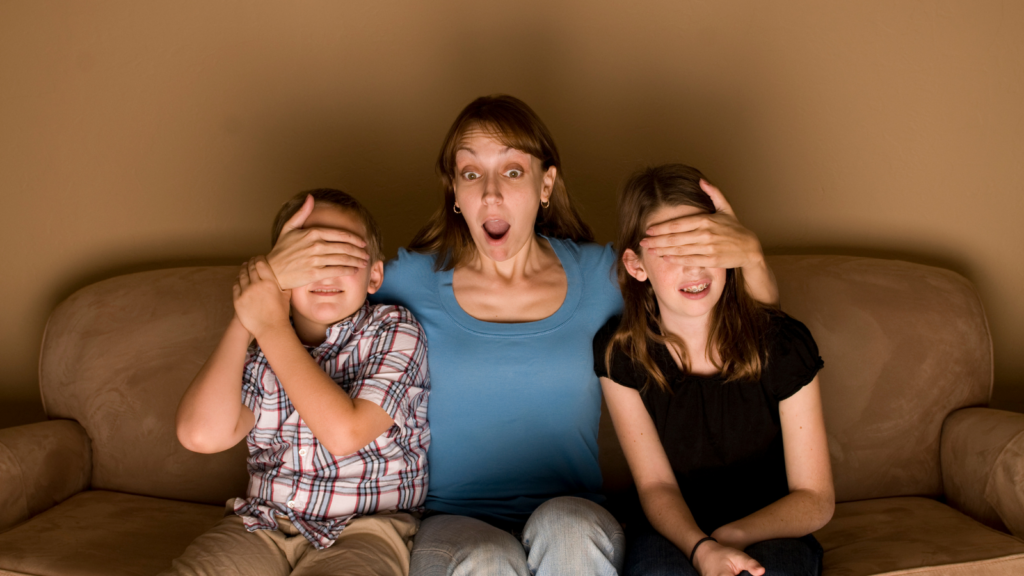Ever wondered what the term “parental guidance” truly means? It’s more than just a phrase you see on movie ratings or hear in conversations about child-rearing. It’s a crucial element of childhood development, shaping the future adults our children become.
This article delves into the essence of parental guidance meaning, unravelling its layers and significance in today’s fast-paced world. From defining the concept to exploring its impact on children’s lives, we’ll journey through the multifaceted world of parenting.
Stay tuned as we unpack the complexities and rewards of parental guidance, shedding light on this vital aspect of raising resilient, well-rounded children.
Parental Guidance Meaning
 Incorporating the concept of parental guidance transcends its traditional association with media ratings. It’s a significant aspect of child development, cultivating resilience and a well-rounded personality in children.
Incorporating the concept of parental guidance transcends its traditional association with media ratings. It’s a significant aspect of child development, cultivating resilience and a well-rounded personality in children.
Parental guidance delineates a nurturing approach, where guardians help shape their children’s social, emotional, and intellectual capacities. It’s not just about supervising or controlling children’s actions, but involves active participation in their growth journey. Specifying instructions, providing feedback, and demonstrating moral and ethical behavior characterize parental guidance. For instance, guiding children towards appropriate decision-making helps them understand consequences and rewards.
The Role of Parental Guidance in Child Development
Parental guidance plays an invaluable role in facilitating a child’s overall development. It’s about fostering physical, emotional, intellectual, and social growth.
Developing Emotional Well-being
Promoting emotional well-being in children forms an essential aspect of parental guidance. Parents, through demonstrations of empathy, patience, and listening skills, help children understand and manage their emotions. They offer support during emotional episodes, especially negative ones, aiding children in making sense of their feelings. Parents’ guidance in crisis situations confers resilience, imparting crucial life skills such as problem solving, conflict resolution, and adaptability.
Encouraging Cognitive Growth
 Parental influence extends to the cognitive development of the child as well. By introducing children to varied experiences, parents play a pivotal role in expanding their intellectual horizon. Activities like reading, storytelling, and interactive educational games catalyze cognitive skills including memory, problem-solving, and attention span. Parents’ consistent engagement in the learning process sparks curiosity, encouraging independent thought and life-long learning.
Parental influence extends to the cognitive development of the child as well. By introducing children to varied experiences, parents play a pivotal role in expanding their intellectual horizon. Activities like reading, storytelling, and interactive educational games catalyze cognitive skills including memory, problem-solving, and attention span. Parents’ consistent engagement in the learning process sparks curiosity, encouraging independent thought and life-long learning.
Parental Guidance in Media and Entertainment
Serving as an extension of the earlier discussion on Parental Guidance in children’s development, we now shift focus to its role in the realm of Media and Entertainment.
Rating System Explained
Parental guidance finds a pertinent place in media, chiefly through film and event rating systems. These ratings, often tagged as ‘PG’ or ‘PG-13’, illustrate content appropriate for specific ages, guiding parents on the media consumption of their offspring. For instance, a ‘PG-13’ rating suggests that a film may contain elements not suitable for children under 13.
The Debate on the Effectiveness of Parental Guidance Ratings
However, efficacy of these ratings sparks a lively debate among individuals. Some argue, ratings fail to fully represent the depth of explicit content in entertainment products, thus, inadequately protecting young viewers. On the other hand, proponents assert that it’s invaluable for parents as a primary filtering tool. An important study by the Parents Television Council (2017), although biased towards parental control, reports that stronger regulation through detailed content descriptions could enhance the current rating system’s effectiveness.
Implementing Parental Guidance at Home
Parental Guidance Strategies for Different Child Ages
 Maximizing parental guidance necessitates an understanding of child developmental stages. Infants and toddlers need constant supervision and interactive play. Preschoolers appreciate structured play with clear rules, while elementary-aged children enjoy engaging educational activities.
Maximizing parental guidance necessitates an understanding of child developmental stages. Infants and toddlers need constant supervision and interactive play. Preschoolers appreciate structured play with clear rules, while elementary-aged children enjoy engaging educational activities.
Adolescents, balancing independence and guidance might be tricky, consider open conversation, setting expectations and house rules.
Nurturing a Healthy Relationship with Children
Bonding is the crux of effective parental guidance. Parents’ willingness to listen promotes openness in children, fostering trust. Engaging in shared interests, such as hobbies or sports, forms a positive bond. Regular communication nurtures empathy and mutual respect. These strategies, deployed aptly, help to develop robust parent-child relationship, crucial for successful parental guidance.
Shaping Child’s Development
Parental guidance meaning is a powerful tool in shaping a child’s development, and it’s more than just monitoring their media consumption. It’s about nurturing, understanding, and fostering a strong bond with children. The role of parental guidance ratings in media and entertainment can’t be understated, despite ongoing debates about their effectiveness.



